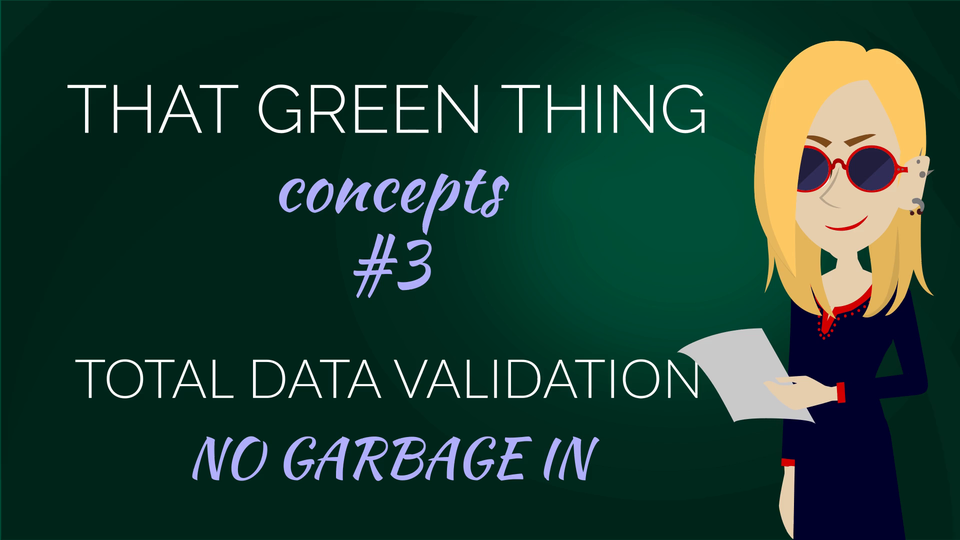Total Validation
In computer science, garbage in, garbage out (GIGO) is the concept that flawed, or nonsense (garbage) input data produces nonsense output. (Wikipedia)
 Video covering the same topic.
Video covering the same topic.
When garbage data is entered into a system, and detected as garbage, there are really only two options. To allow it, or to reject it.
In audio-video production, the approach when you allow bad data is known as fixing in post. If you are in music industry, you probably know how problematic this is.
When developing That Green Thing, we are focused on the process of validation (detecting garbage data). And we are determined to reject it. By doing so, we slow down the entry of data (manual or through imports). However, this pays off in the long run by not having to deal with problems caused by bad data.
We make sure that all entered data is compliant with CWR specification (versions 2.1, 2.2, 3.0 and 3.1), as well as various DDEX formats. This ensures that the data in the system is technically valid.
It can still be garbage, of course, because untrue data can be technically valid. However, there is no way to validate this. No, AI does not help.
Anyway, if you'd prefer to allow bad data into the system and want (someone else) to deal with the consequences at a later point, that That Green Thing is not the solution for you.
We are often asked if we could lax this for one purpose or another. The answer is no. Please do not ask. And if you really have to, please stay away.